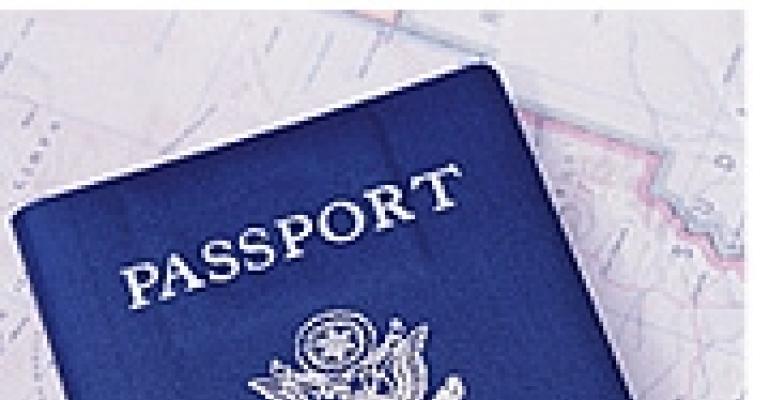
Although the news last week that the U.S. government will begin requiring passports for its citizens returning from Canada, Mexico, Bermuda, and Central and South America grabbed headlines, event planners responding to an informal survey by Special Events Magazine say they expect little change in their event plans.
Only 5 percent of respondents, which included event planners in the U.S. and Canada who organize events internationally, said they foresee any new hassles from the new regulations.
Under the new rules, which take effect in stages, Americans returning to the U.S. by air or sea from Bermuda and Central and South American must begin showing a passport at the end of this year. The rule will extend to travelers returning by air or sea from Canada and Mexico at the end of 2006. By the end of 2007, border crossing by land—whether by tourists or everyday commuters—will require passports or other official identification. At present, many citizens returning to the U.S. from these countries simply show some form of government-issued identification such as a driver's license or birth certificate.
The new rules, which are open to a 60-day review, are the latest step in the effort to tighten security at U.S. borders in the wake of 9/11.
NO BORDER BOTHER
Planners interviewed by Special Events were unfazed by the proposal. “I have already been using my passport for years when traveling anywhere, including the U.S.,” says Michael Caplan, president and creative director of Montreal-based Sensix. “It really makes border crossing much smoother. It may cause some confusion at first, since some people are lazy and will try to pass off birth certificates and other substitute documents at the border. But congressional Web sites will advise delegates, and collateral material will carry reminders in print. In the final analysis, it should not make any difference at all to the trade show or convention travelers.”
Harith Wickrema, head of Harith Productions in Oreland, Pa., notes, "We do quite a lot of meetings in Mexico and the Caribbean, and we have already taken steps to alert our attendees."
REPEAT, REPEAT
Indeed, several planners stressed the need to communicate the new regulations to guests. "The only effect this new legislation will have is on communications to meeting attendees to remind them of the new requirement," says Rob Hulsmeyer, CSEP, CMP, senior partner in New York-based Empire Force Events. "With any new, pertinent detail, repeat, repeat, repeat to attendees if you want them to remember!"
Adds Dion Magee, senior manager of strategic events for Verizon in Irving, Texas, "These regulations will actually help to streamline travel document requirements," as passports will be required for all international travel.
SAVORING THE STAMP
Most attendees at the events produced by Andrea Michaels, founder of Sherman Oaks, Calif.-based Extraordinary Events, already have passports, she notes. And she says that passports give a certain cachet to events. For past events including guests who have gotten their passport for the first time, she has given out "great" passport holders. "They are like kids in a candy store," she says. "They run around showing them off, and the very first time [the passport] gets stamped, they are just totally knocked out by it. It is a huge deal for them."
She adds, "Actually, having the security of a checked passport gives someone the feeling of safety. It's like the airport security checks—you may hate the time you spend, but it makes you feel much safer."




